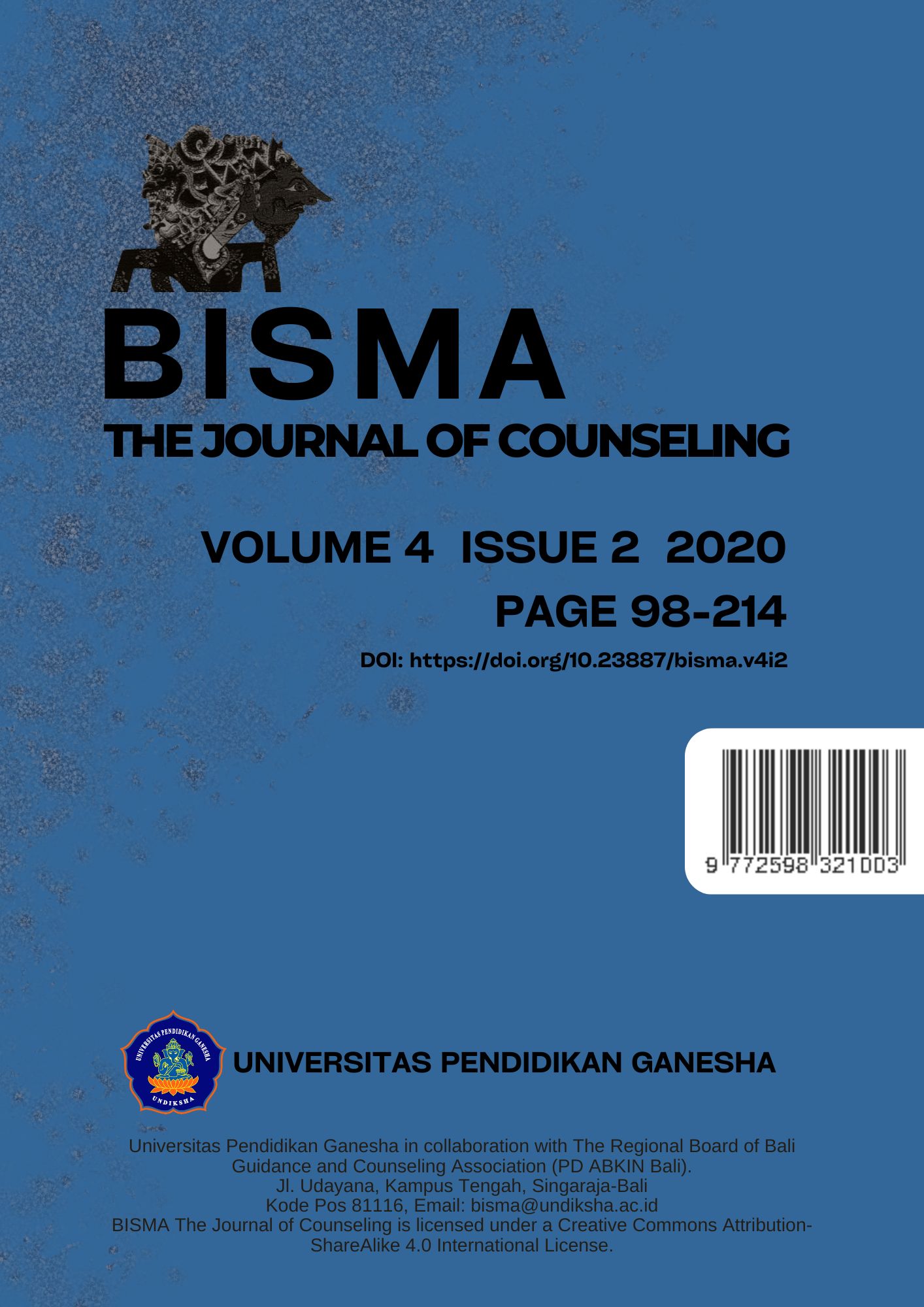The Effect Of Puzzle Game For Early Literacy Achievement of Underachiever Students
DOI:
https://doi.org/10.23887/bisma.v4i2.29883Keywords:
mental retardation, vocal letters, games puzzle, literacy, special need studentsAbstract
Early literacy skills are the capacity to name letters and write them down, spell simple words, recognize letters and signs around them, identify books from titles, and perform book-related activities. Early literacy consists of nine components, namely language, rules/provisions/habits, knowledge of letters, awareness of language elements, the suitability of phonemes, pretend reading, pretend writing, notation, and cognitive skills. However, mentally retarded children only emphasize the recognition of vowels as the basis of initial literacy. This study aims at determine the effect of game media puzzle to improve initial literacy skills through vowel recognition for mild second-grade mentally retarded students. This study uses a case study. The sampling technique that will be used by researchers is to use quantitative and qualitative analysis techniques. Quantitative analysis with simple statistics is used in the survey results to see students' understanding of learning vowels. Qualitative analysis techniques are used in the results of interview data, focus group discussions, observation and documentation. The number of samples used was 3 students from 6 class II students. The research instrument was in the form of observations and interviews. The results of the observation indicate that the average value before being given treatment is 6.0 and the value after being given media treatment is 8.7. Thus it can be predicted the application of game media puzzle effective to improve initial literacy skills through vowel recognition for mild second-grade mentally retarded students.
References
Au, K. H. (2011). Literacy Achievement and Diversity: Keys to Success for Students, Teachers, and Schools. Multicultural Education Series. Teachers College Press. 1234 Amsterdam Avenue, New York, NY 10027.
Barata, G., Gama, S., Jorge, J., & Gonçalves, D. (2015). Identifying student types in a gamified learning experience. In Gamification: Concepts, methodologies, tools, and applications (pp. 541-558). IGI Global.
Damber, U., Samuelsson, S., & Taube, K. (2012). Differences between overachieving and underachieving classes in reading: Teacher, classroom and student characteristics. Journal of Early Childhood Literacy, 12(4), 339-366.
Hishinuma, E. S. (1996). Motivating the gifted underachiever: Implementing reward menus and behavioral contracts within an integrated approach. Gifted Child Today, 19(4), 30-48.
Holmes, M., & Tait-McCutcheon, S. (2009, July). Success for underachievers: How do they get it. In Crossing divides. Proceedings of the 32nd annual conference of the Mathematics Education Research Group of Australasia. Wellington, NZ: MERGA.
Juwadi, I. (2013). Penerapan Media Permainan Puzzle Untuk Meningkatkan Hasil Belajar Matematika Pada Anak Tunagrahita Ringankelas I Di SLB/C TPA Jember. Jurnal Pendidikan Khusus, 1(1).
Karaduman, G. B. (2013). Underachievement in gifted students. International Journal on New Trends in Education and Their Implications, 4(4), 165-172.
Krishnaratne, S., & White, H. (2013). Quality education for all children? What works in education in developing countries (No. 0000-0). International Initiative for Impact Evaluation (3ie).
Linehan, C., Bellord, G., Kirman, B., Morford, Z. H., & Roche, B. (2014, October). Learning curves: analysing pace and challenge in four successful puzzle games. In Proceedings of the first ACM SIGCHI annual symposium on Computer-human interaction in play (pp. 181-190).
Mullis, I. V., Martin, M. O., Foy, P., & Drucker, K. T. (2012). PIRLS 2011 International Results in Reading. International Association for the Evaluation of Educational Achievement. Herengracht 487, Amsterdam, 1017 BT, The Netherlands.
Power, C. (2014). The power of education: Education for all, development, globalisation and UNESCO (Vol. 27). Springer.
Ratnawati, N., Bindarti, W. E., & Rofiq, A. (2013). The Effect of Using Crossword Puzzle on Vocabulary Achievement of the Eighth Year Students at SMP Negeri 5 Jember. Pancaran Pendidikan, 2(2), 23-32.
Snyder, K. E., Fong, C. J., Painter, J. K., Pittard, C. M., Barr, S. M., & Patall, E. A. (2019). Interventions for academically underachieving students: A systematic review and meta-analysis. Educational Research Review, 28, 100294.
Utami, Y. S. (2014). Improving Students’vocabulary Mastery Using Crossword Puzzles For Grade VII of SMP N 2 Srandakan In The Academic Year Of 2013/2014. Yogyakarta State University.









